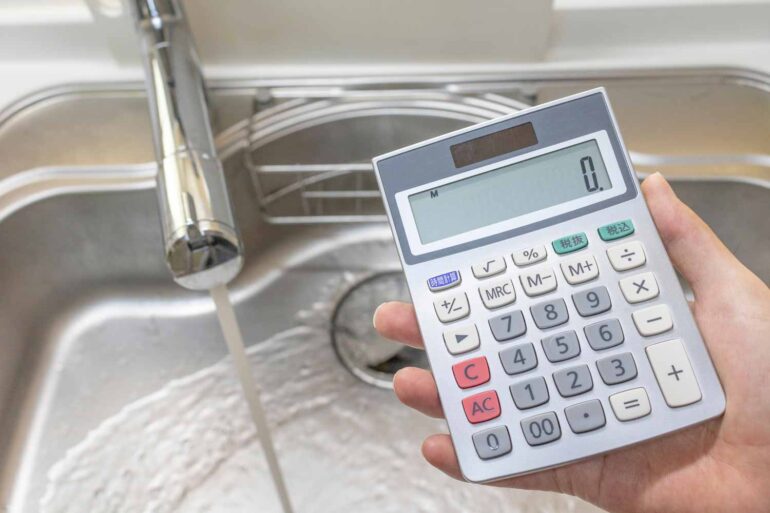Water is an essential resource for businesses, and managing water costs is crucial for maintaining a healthy bottom line. With various water suppliers and tariff options available in the UK, finding the best business water rates can be a challenging task.
However, by following some essential tips and comparing rates effectively, businesses can save significantly on their water bills. In this article, we’ll break down the key factors to consider when comparing business water rates in the UK.
1. Understand Your Water Usage

Before delving into the realm of business water rates, it’s crucial to gain a comprehensive understanding of your water usage through a thorough water bill comparison. Examine your historical water bills to discern patterns and seasonal fluctuations.
Understanding your average daily water consumption and pinpointing peak usage periods becomes instrumental in selecting a tariff that seamlessly aligns with your business’s specific needs.
The accuracy of this data forms the bedrock for making well-informed decisions regarding the most cost-effective water plan for your business.
2. Compare Tariff Structures
Water tariffs come in various structures, such as fixed, variable, and combination tariffs. Fixed tariffs offer a set rate regardless of water usage, providing stability in budgeting. Variable tariffs, on the other hand, fluctuate based on consumption, potentially offering savings during periods of reduced water use.
Combination tariffs combine aspects of both fixed and variable rates. Understanding the pros and cons of each structure is crucial for selecting the one that best suits your business.
3. Research Water Suppliers
The UK water market is open to competition, allowing businesses to choose their water supplier. Researching and comparing different suppliers is a key step in finding the best business water rates. Look for reputable suppliers with a track record of reliability and customer satisfaction.
Consider reading customer reviews and testimonials to gain insights into the service quality and responsiveness of potential suppliers.
4. Take Advantage of Water Audits

Many water suppliers offer free water audits to help businesses identify areas where they can improve water efficiency. By taking advantage of these audits, you can uncover potential leaks, inefficient water fixtures, and other areas for improvement.
Addressing these issues not only reduces your water consumption but also positions your business to negotiate better rates based on improved efficiency.
5. Negotiate Terms and Discounts
Don’t be afraid to negotiate with water suppliers to secure the best rates for your business. Suppliers may be open to offering discounts, especially for long-term contracts or higher volume usage.
Be clear about your business’s needs and leverage competitive quotes from other suppliers to negotiate more favorable terms. A proactive approach to negotiations can result in substantial savings over the life of your water contract.
6. Check for Hidden Fees
When comparing business water rates, it’s crucial to be aware of any hidden fees that may impact the overall cost. Some suppliers may include additional charges for services such as meter reading, customer service, or late payment.
Carefully review the terms and conditions of each supplier to identify any potential hidden fees that could affect your budget. Factor these costs into your comparison to get a true picture of the overall value offered by each supplier.
7. Evaluate Customer Service
Excellent customer service is a critical aspect of choosing a water supplier for your business. A supplier with responsive customer service can address issues promptly, minimizing downtime and disruptions to your operations.
Research the reputation of potential suppliers regarding their customer service, and consider reaching out to their support team with any questions or concerns before making a decision. A reliable and customer-focused supplier contributes to a positive overall experience for your business.
8. Consider Water Efficiency Programs

Some water suppliers offer water efficiency programs designed to help businesses reduce their water consumption. These programs may include educational resources, rebates for water-efficient equipment, and personalized recommendations for improving water efficiency.
Choosing a supplier with a proactive approach to water conservation can lead to long-term cost savings and environmental benefits for your business.
9. Take Advantage of Government Schemes
Explore government schemes and initiatives that may provide financial incentives for businesses implementing water-saving measures. In some cases, businesses can access grants or subsidies to offset the costs of installing water-efficient equipment or undertaking water conservation projects.
Stay informed about available schemes and leverage them to further reduce your business’s water-related expenses.
10. Monitor and Review Regularly
Once you’ve chosen a water supplier and tariff, the work doesn’t end there. Regularly monitor your water bills and consumption patterns to ensure that you’re getting the best value for your investment.
If your business undergoes changes in water usage or if you discover new opportunities for efficiency, revisit your water contract and negotiate adjustments with your supplier. Staying proactive and engaged in managing your water costs is key to long-term savings.
11. Leverage Smart Meter Technology
The advent of smart meter technology has revolutionized how businesses can monitor and manage their water consumption. Consider opting for a water supplier that offers smart meter installations.
Smart meters provide real-time data on your water usage, allowing you to identify and address inefficiencies promptly. This level of visibility empowers businesses to make data-driven decisions, optimize water usage, and potentially qualify for more tailored and cost-effective tariff structures based on accurate consumption data.
12. Explore Bundled Services
Some water suppliers offer bundled services that extend beyond the provision of water. These packages may include additional services like wastewater management, trade effluent disposal, or water treatment solutions.
While evaluating business water rates, explore the possibility of bundling these services. Not only can this streamline your utility management, but it may also result in cost savings compared to sourcing these services separately.
Bundled packages provide convenience and potential financial benefits, making them a worthy consideration for businesses seeking comprehensive water solutions.
13. Stay Informed About Regulatory Changes

The landscape of water regulation and pricing can undergo changes, impacting business water rates. Stay informed about any regulatory developments that may affect the water market and your business’s costs.
Government policies, environmental regulations, and market dynamics can influence pricing structures and the availability of certain tariffs.
Regularly check for updates from regulatory bodies and industry news to ensure that your business remains adaptable to changes, allowing you to proactively adjust your water strategy and optimize costs accordingly.
Conclusion
Effectively comparing business water rates in the UK involves a multifaceted approach. Leveraging smart meter technology, exploring bundled services, and staying informed about regulatory changes are additional strategies that can contribute to long-term savings and operational efficiency.
As the business landscape evolves, businesses that remain adaptable and proactive in managing their water costs will be better positioned to navigate challenges and capitalize on emerging opportunities.
By incorporating these considerations into your evaluation process, you can make well-informed decisions that go beyond immediate cost savings and contribute to the sustainable and cost-effective management of your business’s water resources.
